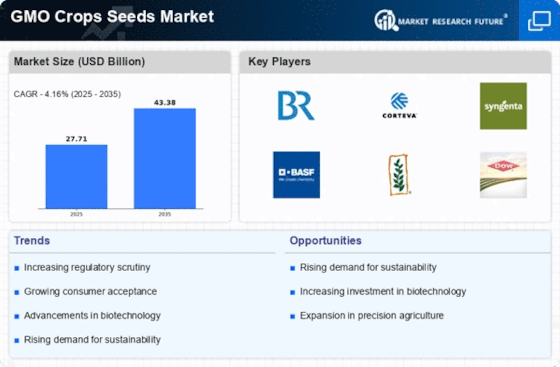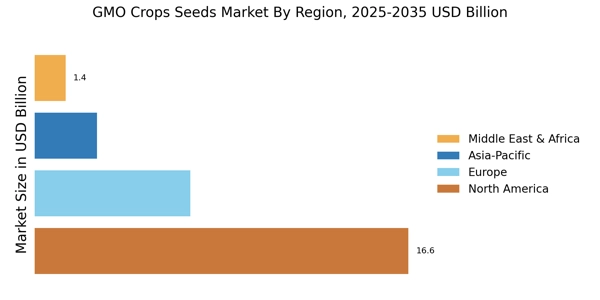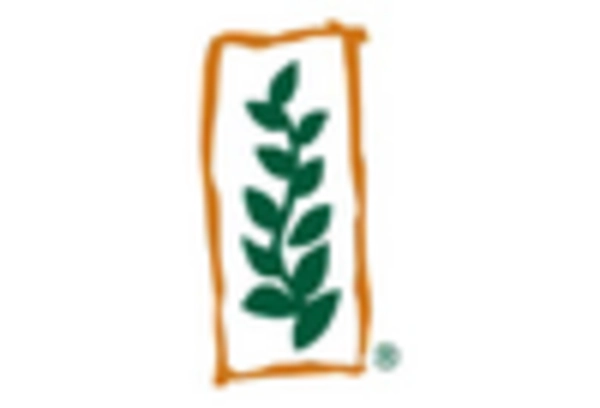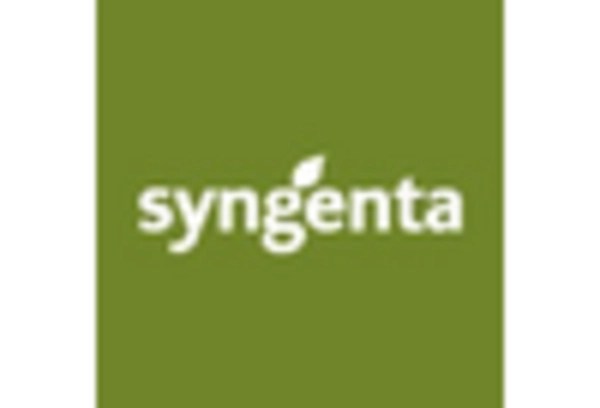Climate Change Adaptation
The gmo crops seeds Market is increasingly influenced by the need for crops that can withstand the impacts of climate change. As weather patterns become more unpredictable, the agricultural sector faces challenges such as droughts, floods, and changing pest dynamics. GMO crops are designed to be more resilient to these conditions, which may enhance food security. For example, drought-resistant varieties can significantly reduce water usage while maintaining yields. This adaptability is likely to attract farmers seeking sustainable solutions, thereby propelling the growth of the GMO Crops Seeds Market.
Advancements in Biotechnology
The GMO Crops Seeds Market is propelled by rapid advancements in biotechnology. Innovations in genetic engineering techniques, such as CRISPR and gene editing, are enabling the development of more precise and effective GMO crops. These advancements not only enhance the traits of crops but also improve the efficiency of the breeding process. As a result, the market is likely to see a new wave of GMO varieties that meet specific consumer and environmental needs. The continuous evolution of biotechnology is expected to play a pivotal role in shaping the future of the GMO Crops Seeds Market.
Economic Viability for Farmers
The economic benefits associated with GMO crops are a significant driver for the GMO Crops Seeds Market. Farmers often experience lower production costs due to reduced pesticide applications and higher yields. For instance, a report suggests that farmers growing GMO crops can save up to 15% on production costs compared to those using traditional seeds. This economic viability encourages more farmers to adopt GMO technology, thereby expanding the market. As profitability becomes increasingly important in agriculture, the economic advantages of GMO crops are likely to continue driving growth in the GMO Crops Seeds Market.
Increased Agricultural Productivity
The GMO Crops Seeds Market is experiencing a surge in demand due to the need for increased agricultural productivity. With the global population projected to reach nearly 9.7 billion by 2050, the pressure on food production systems intensifies. GMO crops are engineered to enhance yield, resist pests, and tolerate adverse environmental conditions, which can lead to higher productivity per acre. For instance, studies indicate that GMO crops can yield up to 20-30% more than conventional varieties. This increase in productivity is crucial for meeting the food demands of a growing population, thereby driving the expansion of the GMO Crops Seeds Market.
Rising Demand for Sustainable Agriculture
The GMO Crops Seeds Market is witnessing a shift towards sustainable agricultural practices. As consumers become more environmentally conscious, there is a growing preference for farming methods that minimize chemical inputs and enhance soil health. GMO crops can contribute to sustainable agriculture by reducing the need for pesticides and herbicides, as many are engineered for pest resistance. This reduction in chemical usage not only benefits the environment but also aligns with consumer preferences for cleaner food products. Consequently, the demand for GMO crops that support sustainable practices is likely to bolster the GMO Crops Seeds Market.


















